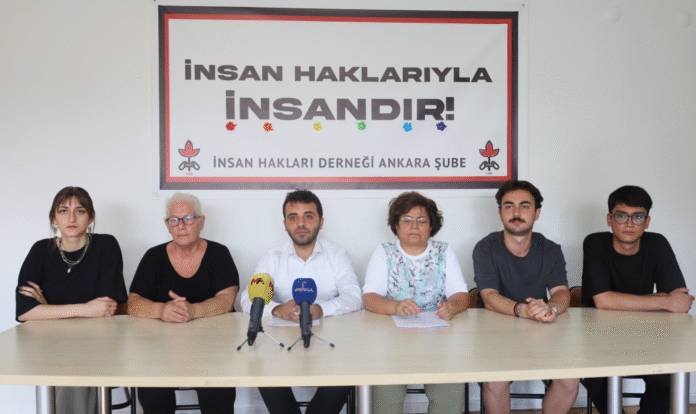Police and intelligence officers in the Turkish capital of Ankara have used threats, deception and off-the-books interrogations since 2023 to pressure students, activists and relatives of detainees to become informants, according to a new report by the Human Rights Association’s (İHD) Ankara branch.
The report, titled “Special Report on Coercion, Threats, Deception to Obtain Information, Forced Informant Recruitment, and Abductions in Ankara,” documented that people identifying themselves as counterterrorism police or intelligence operatives approached targets in the street, outside metro stations, at the Ankara bus terminal and, in one case, inside a women’s prison, to solicit information and cooperation. Several complainants also said individuals who contacted them did not identify themselves.
Some were lured with job offers or money; others were warned that their education, public-sector careers or family members could be harmed if they refused, the group said.
İHD reported 23 complaints in Ankara between October 2023 and June 2024, five filed with the association’s national headquarters and 18 with its Ankara office, as well as 11 in the first six months of 2025. The alleged targets were largely government critics, including university students who joined peaceful demonstrations, opposition party members and relatives of political prisoners, according to the report.
In one 2023 case, a visually impaired man said two men lured him into a car in Ankara’s Etimesgut district under the pretense of offering him a job. Once inside, they allegedly offered him a salary and benefits in exchange for reporting on meetings at the pro-Kurdish Peoples’ Equality and Democracy Party (DEM Party) offices. When he refused, they told him to “think of your wife and children” before releasing him.
In a complaint filed on January 5, 2024, a university student said a man and a woman who identified themselves as police stopped her at Ankara’s Kurtuluş metro exit on December 12, 2023, tried to run a police database check and, when she failed to show a physical ID, forced her into a car and held her for about 30 minutes while asking about student groups and her presence at an International Day for the Elimination of Violence Against Women rally on November 25. She said the officers gave her a phone number, told her to meet the next day and then called repeatedly; after she blocked the number, a female officer intercepted her on January 3, took her to a café-like location, pressed for names of activists and offered to arrange a scholarship if she cooperated. When she refused, she said they told her, “We’ll call you; if you don’t answer, we’ll come to your home and speak with your mother,” handed her an envelope containing cash and dropped her at Güvenpark, a central transit hub in downtown Ankara
A third complaint from April 2024 involved a female hospital worker who said two men and a woman approached her at work claiming to be from an intelligence agency. They allegedly showed her videos of her attending women’s rights events and told her to monitor and report on female activists. She refused, and days later one of the men called her again, saying, “From now on, you will be responsible for what happens.”
The association says such complaints are routinely sent to prosecutors but are often closed without charges, usually on grounds that suspects cannot be identified or that evidence is lacking. This, İHD argues, reflects a policy of impunity and warns that many victims stay silent out of fear, and thus the true number of cases is likely higher.
The association claims that “informal” interviews conducted through deception, intimidation or detention violate Turkish law and international human rights standards.
The practices, the İHD says, took root during Turkey’s state of emergency following a failed coup in July 2016 and persisted after emergency rule formally ended in 2018. The group claims that prosecutors often close complaints for lack of evidence or unidentified suspects, fostering impunity.
In the aftermath of the 2016 coup attempt, the Turkish government launched massive purges across the public sector. According to the Justice Ministry, more than 127,000 people were dismissed from public service. Fewer than 20,000 have been reinstated through a government-appointed appeals body known as the State of Emergency Procedures Investigation Commission (OHAL Commission).
The İHD also criticizes the interior ministry’s oversight body for law-enforcement conduct, the Police Oversight Commission (Kolluk Gözetim Komisyonu). The association adds that none of the 52 complaints it has referred to the commission since 2019 were accepted for investigation.
The Human Rights Association, founded in 1986, has issued similar reports in recent years documenting what it calls coercive “informant-making” tactics and kidnappings. Friday’s report concludes that complaints continue and that authorities have failed to curb the practice.















